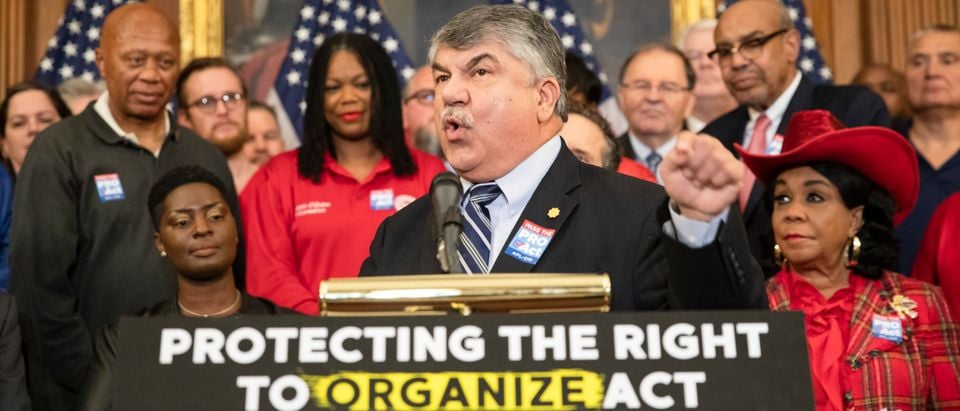Imminently, House leadership is expected to bring a controversial proposal aimed to rewrite federal labor laws up for a vote on the floor of the House of Representatives.
While claiming to be pro-worker, the PRO (Protecting the Right to Organize) Act – H.R. 2474 – is a grab-bag of harmful policies that would deprive millions of workers of their privacy and right to free choice while fundamentally altering America’s system of labor relations.
While not perfect, the National Labor Relations Act (NLRA) attempts to maintain a balance in labor relations for all parties. The PRO Act would remove that balance by implementing a number of policy changes tilting the playing field in favor of labor unions. Caught in the middle are workers whose individual interests won’t be served.
Among its provisions, the PRO Act would negate right-to-work laws in 27 states that aim to protect workers from being forced to support a union to keep their job. These laws protect basic worker freedom and often drive higher personal income and economic growth. If it became law, the PRO Act would line the pockets of unions by forcing workers to pay dues and fees or suffer the consequences.
The PRO Act also undermines workers’ right to vote by secret ballot during a union organizing vote.
Workers would be forced to sign cards in front of union organizers indicating their position. This goes against the very core of how American elections have been held for over a century.
Workers facing the choice of whether or not to support a union in their workplace would also be deprived of balanced information under the PRO Act. This legislation would require employers to turn over workers’ personal contact information to unions while making it illegal to hold meetings with their employees to discuss the impact of collective bargaining. In other words, workers get to hear one side: the union side.
Finally, the bill would adopt a restrictive “ABC” test based off of California’s recent AB 5 legislation. That law makes it exceedingly difficult for a business to classify someone as an independent contractor rather than a traditional employee, even if the worker wants the freedom to be independent. California’s independent contractors like Postmates delivery drivers, freelance journalists, and ride-share drivers have already felt the law’s ill-effects.
The PRO Act claims to be pro-worker. However, when workers are forced to pay union dues, lose the right to secret ballot elections or no longer classified as an independent contractor, the pro-worker argument is hard to make. Members of Congress should have the back of America’s workers and vote no.
Sean Redmond is Executive Director, Labor Policy at the U.S. Chamber of Commerce


